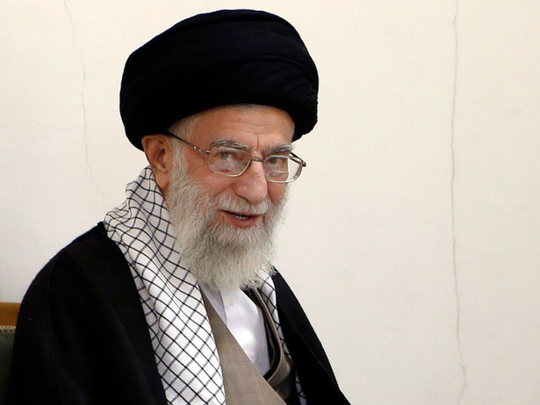
The talks on the Iran nuclear programme do not look likely to meet the November 24 deadline. So the question is, what will happen next? Despite the best efforts of the Israeli lobby in Washington and the poisonous nexus of US congressmen and senators who have been trained for more than 30 years to hate Iran, the talks are almost certain to continue. Both sides have invested substantial time and political capital in getting this far and both will want to have something to show for their efforts.
From the American side, US President Barack Obama and Secretary of State John Kerry would be deeply embarrassed if they have to go back to Washington and tell gloating congressmen that they were right and the Iranians could not be trusted. The obvious question will be that if that was the case, why did they waste so much time trying to find a deal? This is why the US administration is desperate to be foolproof on the question of verification, and that is why the talks are now in trouble in part over how long it should be after the deal is made till all the sanctions are dropped. The Iranians are looking for five years and the Americans are talking of between 10 to 15, although if they want to find a way through this there is still a lot of wriggle-room with lots of different sanctions that can all be handled differently.
On the Iranian side, President Hassan Rouhani has a major political problem as he seeks the buy-in of Supreme Leader Ali Khamenei who has headed Iran for 25 years with an abiding hatred of all things American at the core of his worldview and has managed a government that had spent more than $45 billion (Dh165.5 billion) on a nuclear progamme that is seen as a national icon. An important difference between the two is that Khamenei sees the talks as a multilateral discussion between Iran and the entire world community, as represented by the P5+1 (US, Britain, France, Russia, China plus Germany). But the talks have now become bilateral negotiations between the US and Iran, which carries the implication that a nuclear deal will also mean a dramatic improvement in American-Iranian bilateral relations. This is not what Khamenei wants at all, even if Rouhani is ready to go for it.
But also Rouhani faces a deeper problem in getting acceptance for a deal in Iran because any complete deal with an end to all sanctions will threaten the conservatives’ grip on power (exemplified by Khamenei) because it will almost certainly lead to a liberal resurgence. The political premise implicit in a deal that Iran can work with the Americans will be a profound shift in Iranian ideology, which will greatly strengthen the internationalists in the system to the detriment of the conservatives.
The collision between all these political forces makes a full deal unlikely, even if the technical side could be managed. But there are a lot of economic forces pushing both sides to find some kind of an answer to the current standoff and the economy is where the presidency in Iran does have some room to wield authority, even if it is curtailed in foreign policy by the Supreme Leader.
So an extension to the six-month deadline is likely, which could be for another six months or less because neither side will want the talks to run for too long. It seems unlikely that the necessary win-win for a full deal can be achieved, as the American need to prove transparency (and by implication domination) over Iran can only infuriate the Tehran establishment around the Supreme Leader.
But so much has been thrashed out over the past year that there may well be enough to produce a half-way deal, with enough transparency being established on a project-by-project basis to lead to reciprocal lifting of some of the sanctions.
It may also help Rouhani with the Supreme Leader if he becomes fiercely anti-American and makes very clear that the negotiations are multi-lateral with the P5+1 and are solely about the nuclear programme. Rouhani needs to prove in Tehran that the talks are not about establishing better bilateral relations with Washington. To this end, any attempt by the Americans or others to link the nuclear talks to other issues in the region may well backfire, because a grand alliance in Iraq against Daesh (Islamic State of Iraq and the Levant) is exactly what the Supreme Leader does not want, even if General Qasim Sulaimani and his Al Quds Brigade is in action fighting Daesh.
The economic fact is that lower oil price is making it harder for the Iranian government to continue to pay its bills and there are more than $300 billion of unfinished projects in Iran waiting for international companies to work on. Therefore, lifting, or at least lightening, sanctions makes a lot of sense to Rouhani and thousands of American and European companies. They are opposed by the unusual combination of Israel, Khamenei and a large section of Washington.







